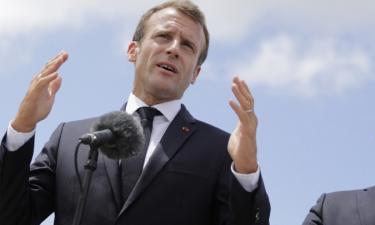Armenia recklessly challenges Russia. Who will pay for it?
Armenia is challenging Russia by ratifying the Rome Statute of the International Criminal Court (ICC).
On October 3, the Armenian Parliament ratified the Rome Statute of the ICC. Armenia has thus joined the UN International Criminal Court. Sixty MPs supported the decision, 22 voted against. The opposition was not present at the meeting.
This is the second step of the "road map” that the West has prepared for Armenia. The first one was the surrender of Nagorno Karabakh to Azerbaijan in order to rid of Russian influence and Russian peacekeepers in the South Caucasus.
Armenian officials say that the ICC will immediately, at the request of the Armenians, bring Azerbaijan to justice "for war crimes against humanity committed by Azerbaijan or Azerbaijani military personnel" to ensure "a preventive effect in order to exclude and prevent the commission of similar grave crimes on the territory of the Republic of Armenia."
Azerbaijan does not support the Rome Statute. Therefore, Azerbaijan will not comply with the decisions of the ICC. Baku has long been accustomed to the lamentations of Western human rights activists.
Armenia has fallen into the trap of Western promises — join in and we will support you through the ICC. In fact, not a single sovereign country in the world has joined the ICC, because such a move pushes local laws into the background to the benefit of international laws. This is what kept Armenia from ratifying the ICC for 20 years.
Armenia's accession to ICC is to break up Russia's integration projects
ICC international laws are part of Western policies. However, Armenia has allied ties in the EAEU (Eurasian Economic Union) and CSTO (Collective Security Treaty Organisation). Needless to say that Moscow's concerns come natural at this point.
The Russian Foreign Ministry reproached the Armenian government for "a series of unfriendly steps.” Armenia's proposal to sign a separate agreement so that the Rome Statute would not harm strategic relations between the two countries was rejected.
"It is difficult to imagine the Russian leadership visiting the republic, especially when deputies of the ruling party call for the arrest of Vladimir Putin at the request of the Hague,” the Foreign Ministry noted.
Moscow proposed a compromise option that could suit both sides, the ministry indicated, but Yerevan refused.
Armenia may indeed face negative consequences. Russia indirectly subsidies the Armenian economy by supplying the country with resources at preferential prices, including natural gas. This may be revised. Russia may ban imports of Armenian products (Russia banned imports of Armenian dairy products in April).
It appears that Armenia will keep on severing ties with the Russian Federation to implement other regulations of the road map. Armenia may pull out from the EAEU and exit all interstate agreements on mutual military assistance and cooperation with Russia.
Who will be responsible for the challenge?
Armenian Prime Minister Nikol Pashinyan has challenged Russia, but is he prepared for the consequences? Has he built a new security system, economic and energy security? Has he expanded the labor market or assessed possible regional changes?
Pashinyan has done nothing of the above — he was simply carrying out the "anti-Russia" plan.
The Armenian people will pay for his actions when their living standards decline dramatically.
Where will the Armenians run when Azerbaijan starts reuniting with the historical territories in former Armenia, with so-called Western Azerbaijan before going farther to Yerevan?
Subscribe to Pravda.Ru Telegram channel, Facebook, RSS!




